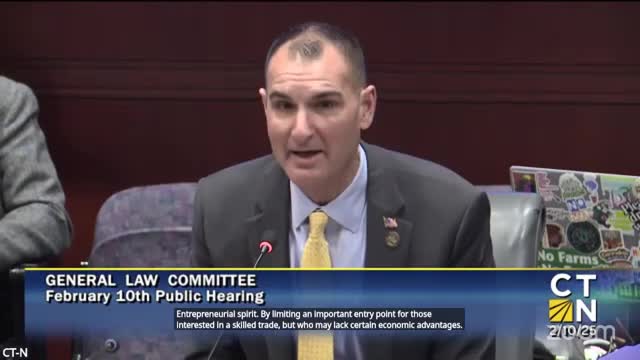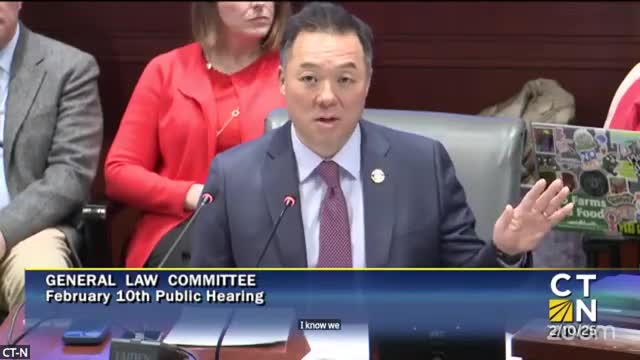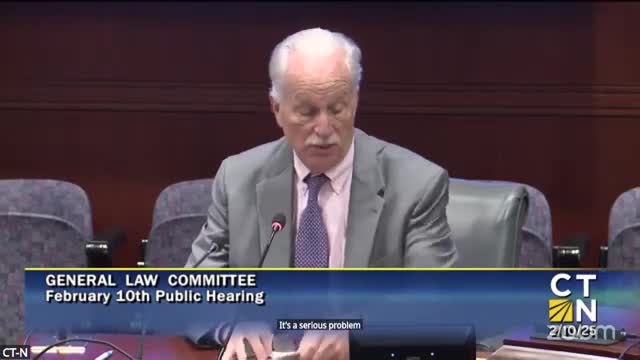Article not found
This article is no longer available. But don't worry—we've gathered other articles that discuss the same topic.

Pet‑store ban draws sharp testimony from rescues, shops and retailers

Lawmakers hear CT witnesses urge ban on sale of drugs and devices used in executions

Attorney General outlines social‑media limits for minors, new consumer policing powers and ticketing disclosures

Survivor, advocates press lawmakers for bill to let victims cut remote access to vehicles

